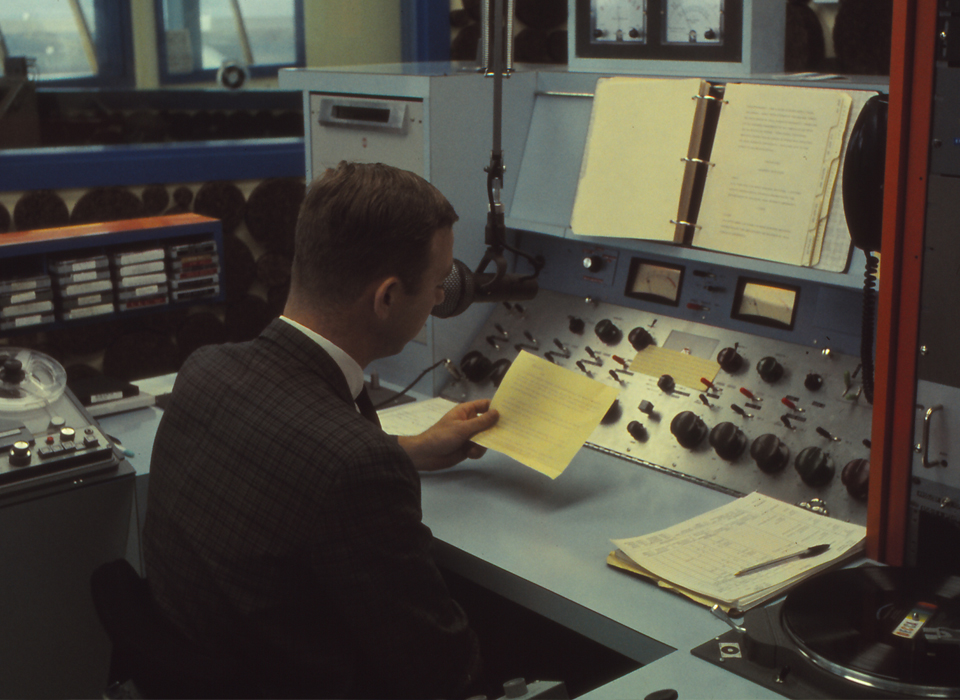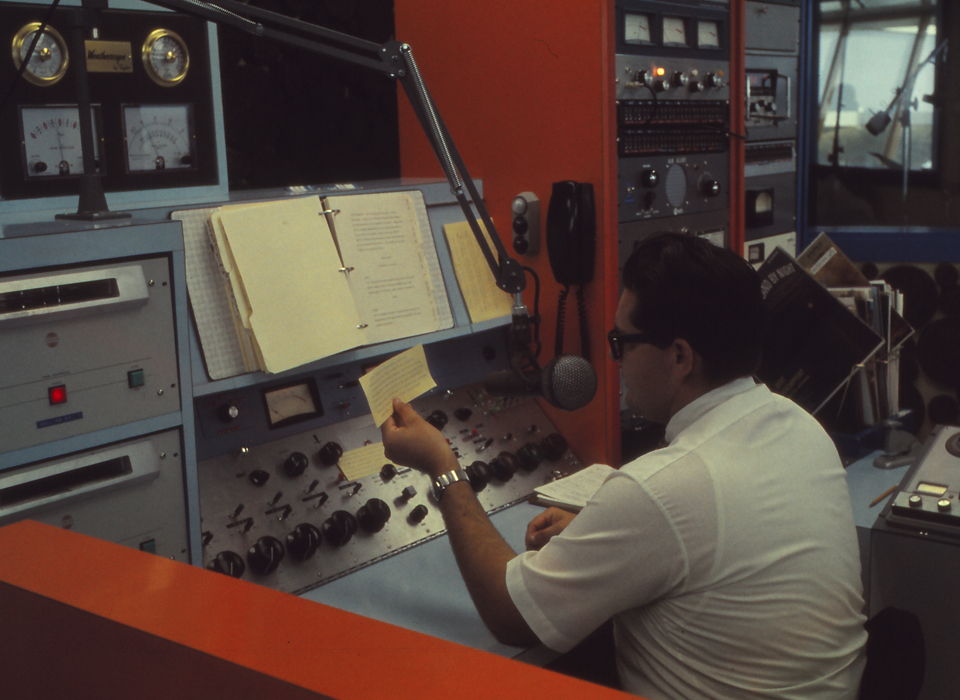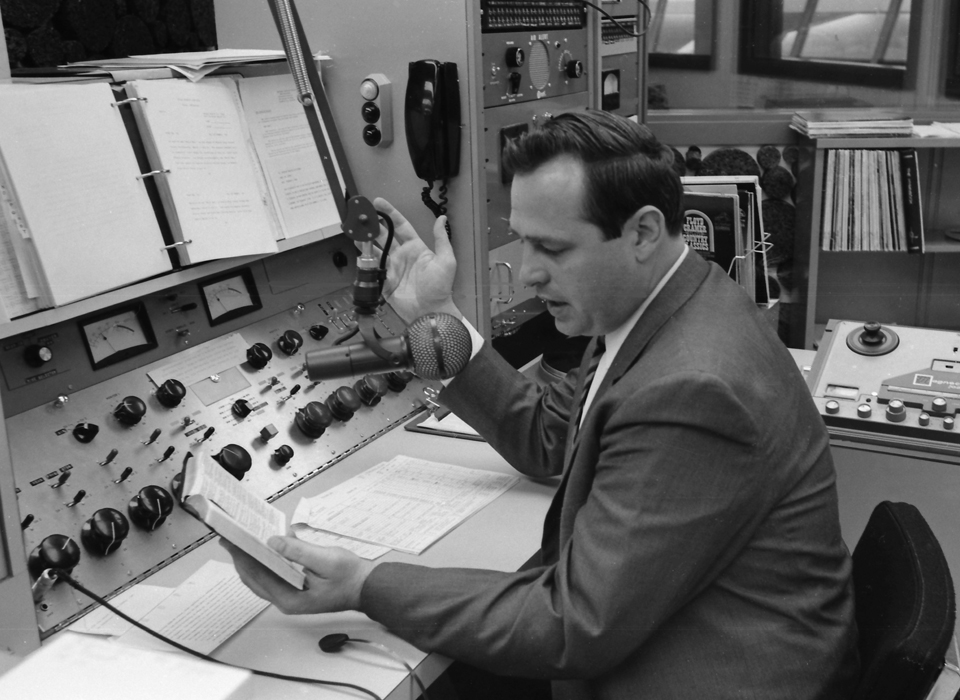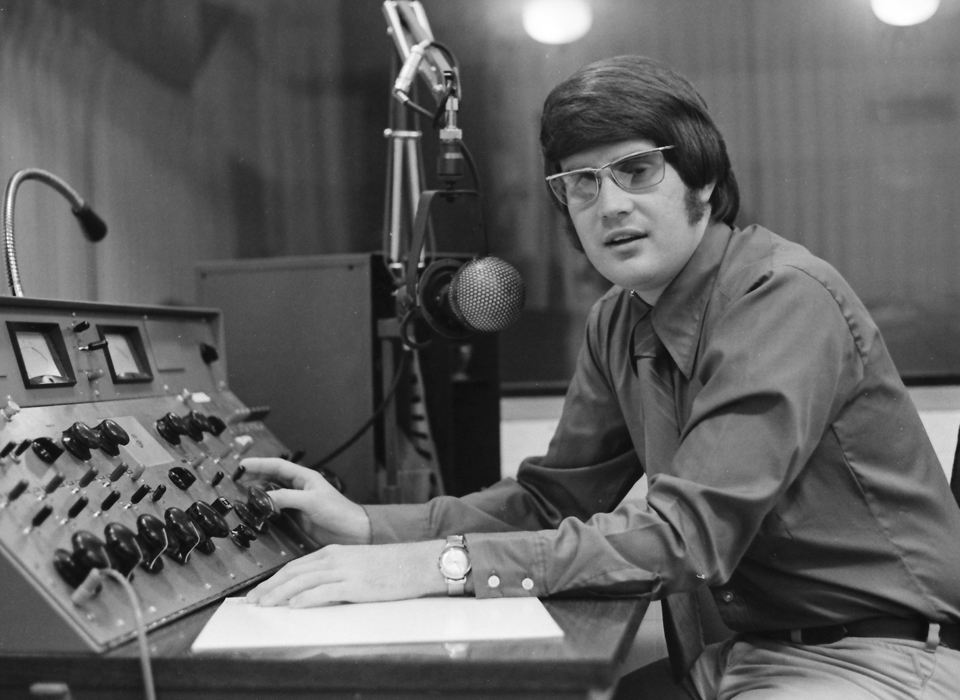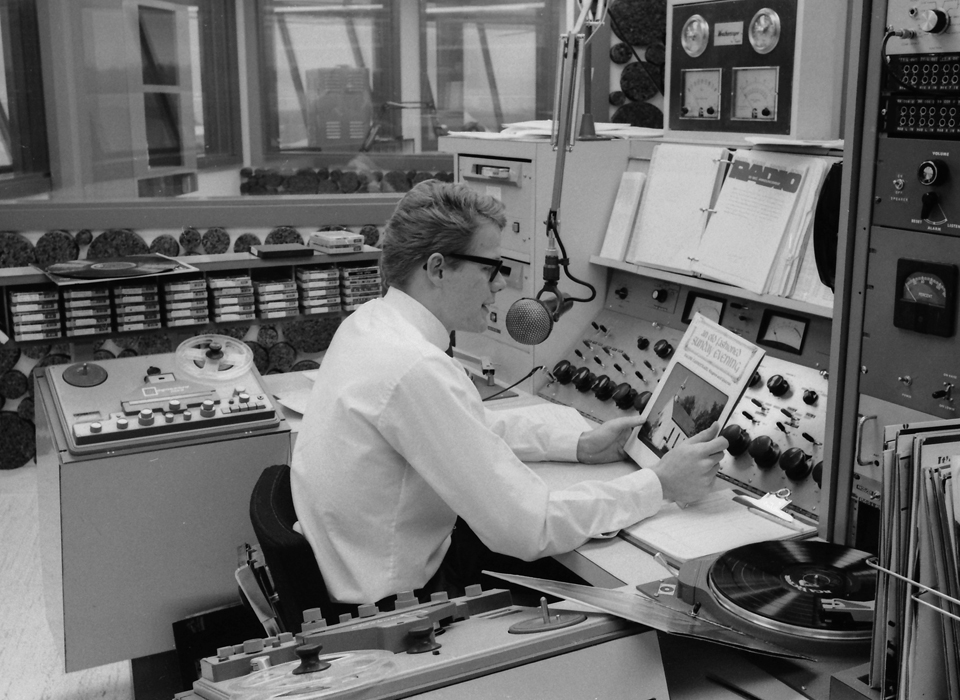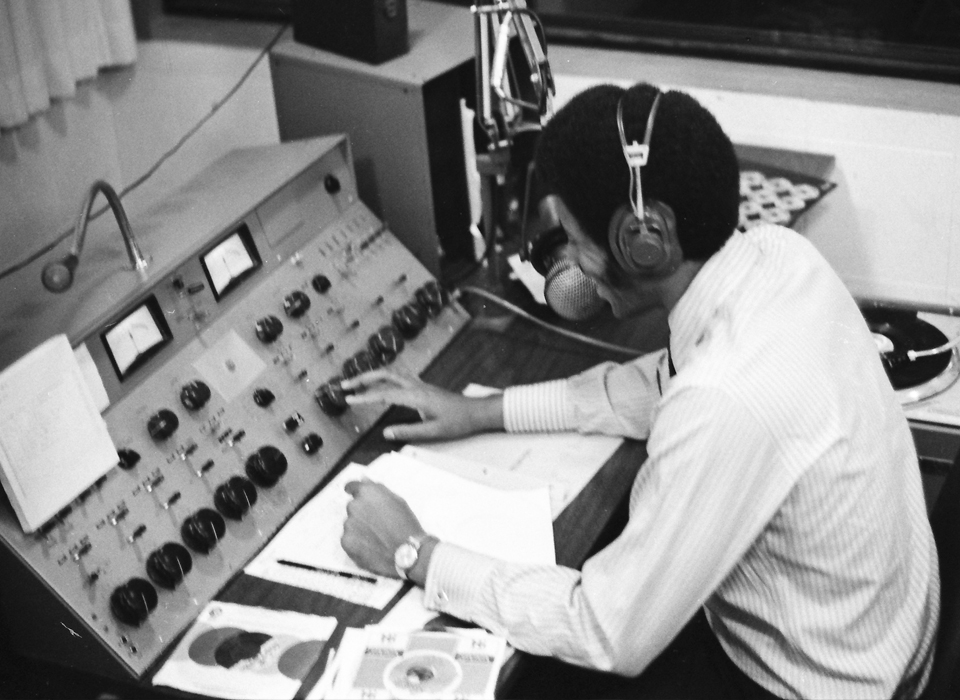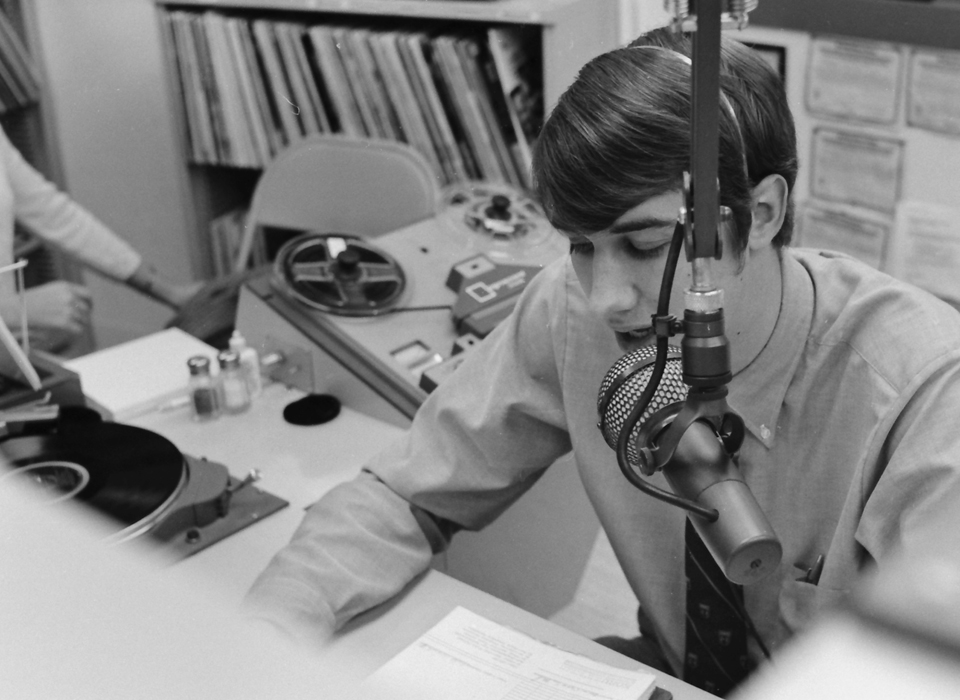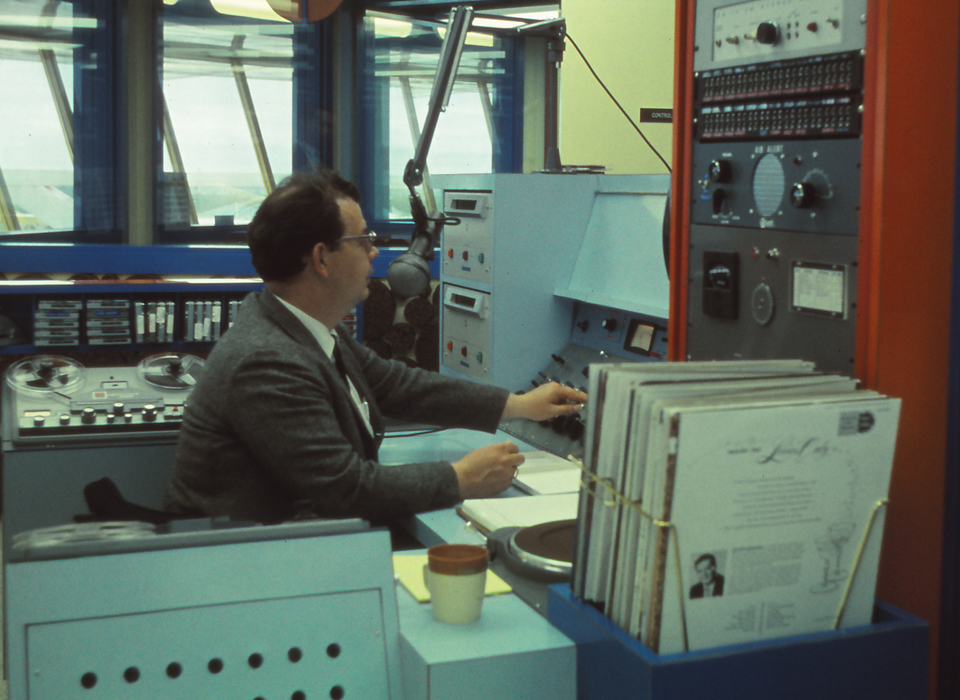The History Of KORU Radio
In the early sixties, Oral Roberts launched a 100,000 watt, FM radio station broadcasting to most of the state of Oklahoma, the lower part of Kansas, and the western part of Arkansas.
It was considered a middle-of-the road format consisting of hymns, instrumentals, gospel, and conservative music. At that time, the worship music of today was unheard of. To bring a drum set, or a bass guitar into a church was considered sacrilege outside of possibly some rural Pentecostal churches. Worship music had no beat. KORU covered news and the local weather and had Christian specialty programming. The station was very popular with Christians in the listening area.
KORU was housed on the observation deck of the prayer tower in the center section surrounded by glass windows so that the visitors could see the disc jockeys and the production that was going on behind the scenes. Production back then was a lot more interesting as reel-to-reel tape and carts were state of the art. Music was played off of discs (records), using turntables (record players). Most programming was live, although the weather and news was usually pre-recorded. Visitors could both see and hear the live D.J.s doing their shifts, and any other production that was being assembled or broadcast.
KORU had a full-time paid staff, but also used ORU students majoring in Telecommunications (radio & TV broadcasting) to D.J. the local radio shifts.
KORU had signed an agreement with the Federal Communications Commission, that for the first seven years, the station would be non-profit. It cost about half a million dollars a year to operate. The transmitting tower was on the hill behind the maintenance barn. In 1972, Mabee Center was being constructed and was running twice the cost of the initial budget. Oral needed money to complete it and when he found out the operating costs of KORU and that it was non-profit, he shut the station down during the summer of 1972, sold the FM frequency to a station in Tulsa, and all the equipment to a station in Oklahoma City.
Mike Mitchell was a senior the Fall of 1973, and had worked on KORU for several years as a student. He started a student station that operated from the Telecommunications studios. The first station was cabled to the cafeteria on campus and of the three sections there, one was full volume, the second half volume and the third silent.
KORU management passed to Mark Labash in 1974 and for several years after that, was passed on to other senior broadcast majors. KORU went from the cafeteria, to the Dial Access system, to small transmitters that covered each student dorm. Nothing seemed to work successfully and when the transmitters interfered with a local FM station on the street behind the campus, the FCC threatened a fine. The administration finally pulled the plug on the student station and KORU went dark.
Several years later, Mark Labash who was now a faculty member at ORU, in the radio and television area of communication arts, had a dream of rebirthing the station with a solid Christian format. Mark had worked on the FM station from 1971 to 1972. He began praying for the opportunity to see the station reborn. In 2008, Christie Taylor had returned to finish her degree at ORU after several years of working for a radio station. Laura Holland, the chair of communication arts, put her in touch with Labash and together they worked to create the plan for two internet, downstream, 24/7 stations. An all-Spanish and an all-English format. The stations would be student managed and student run with faculty guidance. The cost would be covered by the students activities fund. Both stations went back online in the Fall of 2011.
Today, those stations are still operational, carrying Christian music and programming for the Glory of God. Their primary audience is ORU students but their listening audience is alumni, future ORU students, and other Christian individuals of all ages around the world. Their goals are entertainment, recruitment, evangelism, and information about ORU. KORU has apps for smart phones and a website. Labash believes that as long as KORU keeps the Lord Jesus at the heart of their programming, KORU will be successful for a number of years. Launch the Player Now!
It was considered a middle-of-the road format consisting of hymns, instrumentals, gospel, and conservative music. At that time, the worship music of today was unheard of. To bring a drum set, or a bass guitar into a church was considered sacrilege outside of possibly some rural Pentecostal churches. Worship music had no beat. KORU covered news and the local weather and had Christian specialty programming. The station was very popular with Christians in the listening area.
KORU was housed on the observation deck of the prayer tower in the center section surrounded by glass windows so that the visitors could see the disc jockeys and the production that was going on behind the scenes. Production back then was a lot more interesting as reel-to-reel tape and carts were state of the art. Music was played off of discs (records), using turntables (record players). Most programming was live, although the weather and news was usually pre-recorded. Visitors could both see and hear the live D.J.s doing their shifts, and any other production that was being assembled or broadcast.
KORU had a full-time paid staff, but also used ORU students majoring in Telecommunications (radio & TV broadcasting) to D.J. the local radio shifts.
KORU had signed an agreement with the Federal Communications Commission, that for the first seven years, the station would be non-profit. It cost about half a million dollars a year to operate. The transmitting tower was on the hill behind the maintenance barn. In 1972, Mabee Center was being constructed and was running twice the cost of the initial budget. Oral needed money to complete it and when he found out the operating costs of KORU and that it was non-profit, he shut the station down during the summer of 1972, sold the FM frequency to a station in Tulsa, and all the equipment to a station in Oklahoma City.
Mike Mitchell was a senior the Fall of 1973, and had worked on KORU for several years as a student. He started a student station that operated from the Telecommunications studios. The first station was cabled to the cafeteria on campus and of the three sections there, one was full volume, the second half volume and the third silent.
KORU management passed to Mark Labash in 1974 and for several years after that, was passed on to other senior broadcast majors. KORU went from the cafeteria, to the Dial Access system, to small transmitters that covered each student dorm. Nothing seemed to work successfully and when the transmitters interfered with a local FM station on the street behind the campus, the FCC threatened a fine. The administration finally pulled the plug on the student station and KORU went dark.
Several years later, Mark Labash who was now a faculty member at ORU, in the radio and television area of communication arts, had a dream of rebirthing the station with a solid Christian format. Mark had worked on the FM station from 1971 to 1972. He began praying for the opportunity to see the station reborn. In 2008, Christie Taylor had returned to finish her degree at ORU after several years of working for a radio station. Laura Holland, the chair of communication arts, put her in touch with Labash and together they worked to create the plan for two internet, downstream, 24/7 stations. An all-Spanish and an all-English format. The stations would be student managed and student run with faculty guidance. The cost would be covered by the students activities fund. Both stations went back online in the Fall of 2011.
Today, those stations are still operational, carrying Christian music and programming for the Glory of God. Their primary audience is ORU students but their listening audience is alumni, future ORU students, and other Christian individuals of all ages around the world. Their goals are entertainment, recruitment, evangelism, and information about ORU. KORU has apps for smart phones and a website. Labash believes that as long as KORU keeps the Lord Jesus at the heart of their programming, KORU will be successful for a number of years. Launch the Player Now!

